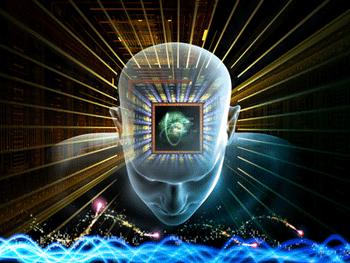Cognitive Development, its Stages and Importance
The question of cognitive development has been part of the discussion for long. The human child not only grows physically but also mentally. Besides controlling the voluntary and involuntary actions of the organs, the brain has many other tasks to take care of. As the individual’s mind matures, the brain’s ability to process information, conceptualize resources, learn speech and language, solve problems, derive solutions and to extract meanings from situations also gets enhanced. All of these abilities, along with others, make up for the cognitive development of the human’s brain.
What is Cognitive Development?
The cognitive development of the brain is, therefore, related to but not limited to:
- Information processing, which is, in turn, linked to perception and attention
- Language development; for example, how first languages are acquired, and how second, third, and so on, words are learned
- Intelligence
- Memory
- Ability to reason and solve problems
All of the topics above of study within the field of Psychology are related to, and rely upon, cognitive development. For someone to have a healthy development of language skills the individual must have a robust growth of cognitive ability and overall, the brain; most of this type of construction occurs in childhood, during the transition from a child to an adolescent, and during adolescence and adulthood. How you can facilitate positive cognitive development in yourself will be explored.
A Brief History and Stages
There are two influential psychologists, Piaget and Vygotsky, who focused on the development of cognition and cognitive function. Both of these psychologists lived around the same time; approximately, their theories became known around the 1960s-1970s.
Theories
Piaget set forth four stages of development of cognition that applies to children but extends to adulthood. These four stages are as follows:
1. Sensorimotor Stage
This stage applies to infants from birth to approximately 18-24 months. Explicitly, it states that infants are aware of only what is immediately in front of them; infants will focus on what they see, what they are doing, and any physical interactions that are within their immediate environment. It is not until approximately 7-9 months that the infant can know that an object still exists even if the object in question is not currently within the infant's range of vision; this is known as object permanence and is an indicator that memory is developing and increasing.
2. Preoperational Stage
This stage extends from 18-24 months to early childhood, approximately seven years of age. Children in this stage of development can use language in a way that is more mature; additionally, they develop their memory and imagination.
3. Concrete Operational Stage
Children in this stage are typically 7-11 years of age. During this stage, children can demonstrate logical and concrete reasoning. Also, children become less egocentric, as they are becoming increasingly more aware of external events.
4. Formal Operational Stage
Characteristic of those who are 11 and older, this stage represents the period during which people are beginning to able to logically use symbols that are related to various abstract concepts, including, but not limited to, the disciplines of algebra and science. Once this stage is reached, the individual is then able to develop hypotheses and consider plausible alternatives.

5. Post Formal Stage
If you are interested in studying this topic in the field of Psychology, you should know that later researchers expanded upon Piaget's theory, to include a fifth stage. That known as post-formal thought is characteristic of thinking that is more flexible and logical and more capable of considering complex intellectual and moral issues.
There is another famous psychologist with whom you should be familiar if you are interested in cognitive development; namely, Vygotsky. Compared to Piaget, Vygotsky's theory places more emphasis on social interaction's role in the development of cognition and cognitive function; in other words, he believes that learning that occurs in a social context will precede development at any stage.
What Would You Do If You Pursued A Career in Cognitive Development?
If you decide to work in this field as your career, there are various options you have in regards to what you can do:
- You can help solve problems by finding solutions through means of applied research in this field.
- You could help increase the quality of treatment for those with various cognitive disorders based on your knowledge and insight.
- You could develop computer programs and software that focuses on helping individuals learn a foreign language quicker.
Practice with Free IQ Tests
Recent Articles
-
What type of test did I take
Apr 04, 22 04:09 AM
I was given a psychological test years ago, but wasn’t told what it was for. The rating used a bell curve and my score fell in the above average not yet -
ﹰﹰﹰﹰﹰﹰﹰGOOD
Aug 13, 21 03:20 PM
Since the enneagram test helps people to understand their strength and weaknessess. And helps them remove their weaknesses then the test is good -
Knowing the inner me
Aug 13, 21 03:17 PM
Sometimes I ask myself that is this my behaviour or not? Because I am really shy and I lack confidence, I find it hard to socialize with other people.I
